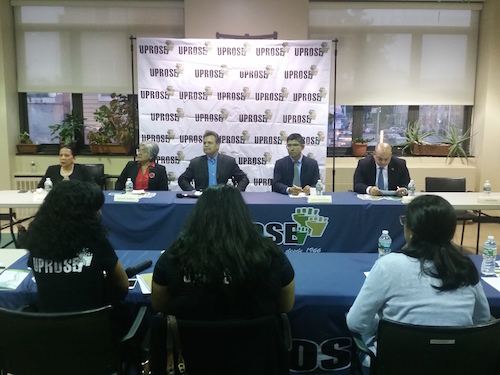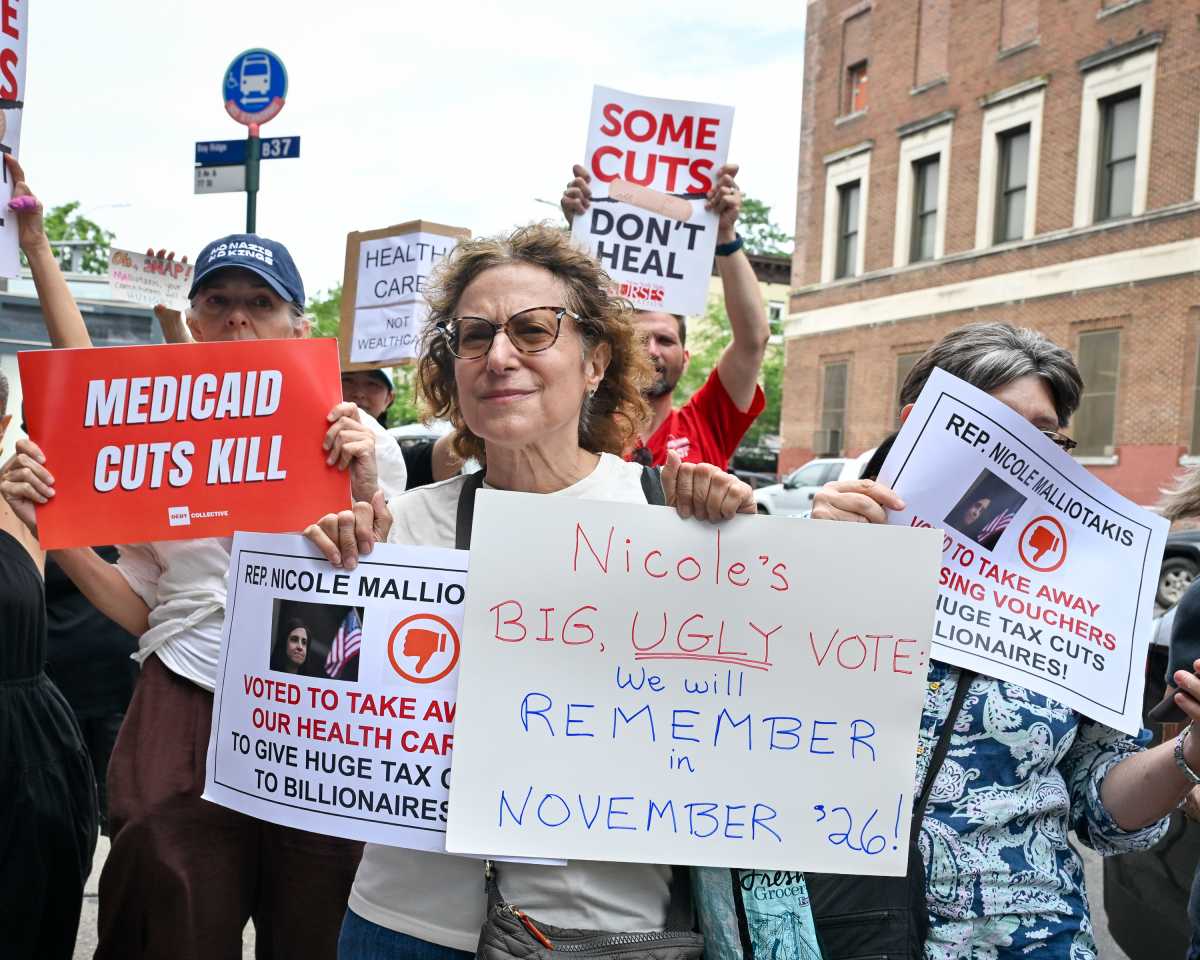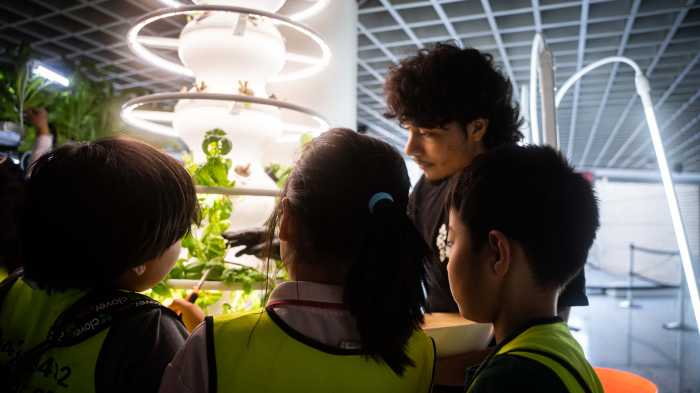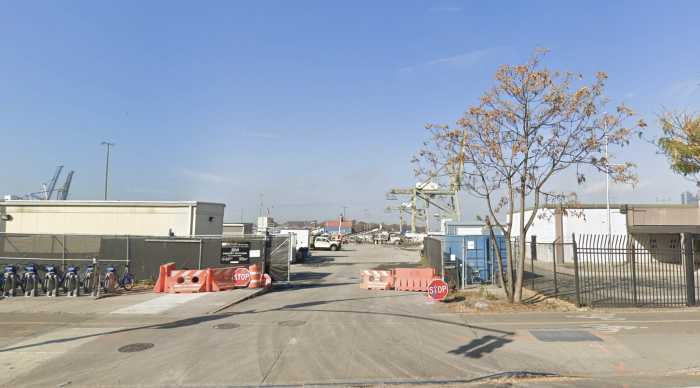With five days left to the September 12 primary election, five out of seven candidates for the 38th Council District seat in Sunset Park and Red Hook gathered to face off over — and sometimes agree on — issues of climate change, public transportation, job creation, real estate development, school overcrowding and safety, and police-community relations.
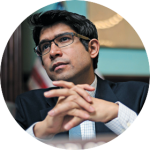
At one table, facing the standing-room-only crowd of over 60, sat incumbent City Councilmember Carlos Menchaca (D-Red Hook, Sunset Park), Assemblymember Felix Ortiz (D-Sunset Park, Bay Ridge), former councilmember Sara Gonzalez, attorney and business owner Delvis Valdes, and Green Party candidate Carmen Hulbert. Candidates Chris Miao and Javier Nieves did not attend.
Opposite them at the front of the crowd sat four young Sunset Parkers, among those who organized the debate through the local youth and environmental justice nonprofit UPROSE. Questions came from both the organizers and the public.
Sunset Park’s working waterfront west of Third Avenue — which includes the growing manufacturing and retail hub of Industry City — featured prominently, recurring in different issues throughout the night.
“It is our first line of defense against natural disasters, [but] is being targeted by the most elite of New York real estate developers [whose] priority is of shaping the culture for people outside the neighborhood,” not to protect the environment and serve the community,” said debate moderator Rico Bautista before asking candidates how they will address climate change and whether they support Industry City’s push to rezone the area for luxury and retail.
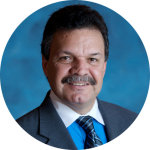
All five candidates agreed on the importance of preparing for hurricanes and storms, as well as on giving local stakeholders a seat at the table, but fell short of committing or mentioning specific options, and Hulbert deviated to say she supports solar panels and green jobs.
Gonzalez deferred to the state and federal governments, which hold the purse strings and stamps of approval for any major projects, while Menchaca said City Council does “have the power to move us from fossil fuels to environmentally-friendly policy” via getting sanitation trucks off the streets and onto water vehicles, and both Ortiz and Valdes emphasized collaboration between local groups and federal agencies.
As for possible rezoning, it was a unanimous “No” to luxury residential buildings, with some wiggle room for retail — if they are small businesses. “Not big box stores,” said Valdes, who said his “heart lies with mom-and-pops.” Community input is key, all agreed, but Gonzalez saw it as “working together behind closed doors, without cameras and press” and Ortiz said her suggestion “made me so freaking scared — open those doors.”
On job creation, “we need to hold the line on manufacturing in business zones — it’s good to have jobs come to us, like in fashion, film and food,” said Menchaca, as that helps with what Hulbert described as “walk to work” opportunities and is in line with what Valdes, Ortiz and Gonzalez agreed has been a promising partnership with the city Economic Development Corporation.
However, such increased foot traffic brings with it challenges, both from rising rents and gentrification and strained public transportation systems.
“I’m against it,” was the refrain from all regarding the city’s proposed BQX light rail project, which would use over $2 billion to connect the Queens waterfront to Downtown Brooklyn, Red Hook and Sunset Park. “Kill it,” said Valdes. “It’s the most idiotic thing [for] basically a bus. . . put the money into other transit.”
“I’m against anything that drives gentrification,” concurred Menchaca, who listed “better buses, connections to the ferry, and more CitiBike stations” as “things we can do now” for residents.
All candidates then expressed support for the “Fair Fare” campaign, which would offer half- and low-priced MetroCards to students, seniors and low-income residents.
Another point of agreement — the need for more schools and after-school programs for Sunset Park’s rapidly growing population; Menchaca touted the approval of five new schools during his tenure and said he’s open to using eminent domain to make room for more — also led to discussion of the need for more affordable housing and the need for students to feel safe in and around school, whether from police officers or federal immigration agents.
“End broken-windows policing,” declared Hulbert on more than one occasion in answer to various questions, including one about how, if elected, they would address immigration issues and New York’s status as a sanctuary city. “Protect everyone vulnerable. The NYPD has never helped the Immigration and Customs Enforcement (ICE), but who knows if that will change?”
“Neighborhood community officers are engaging with residents and it is working,” said Menchaca, but “we need to remove police from schools and bring in more social workers.”
The next debate is scheduled for 7 p.m., Friday, September 8, at 245 23rd Street, on the second floor.


